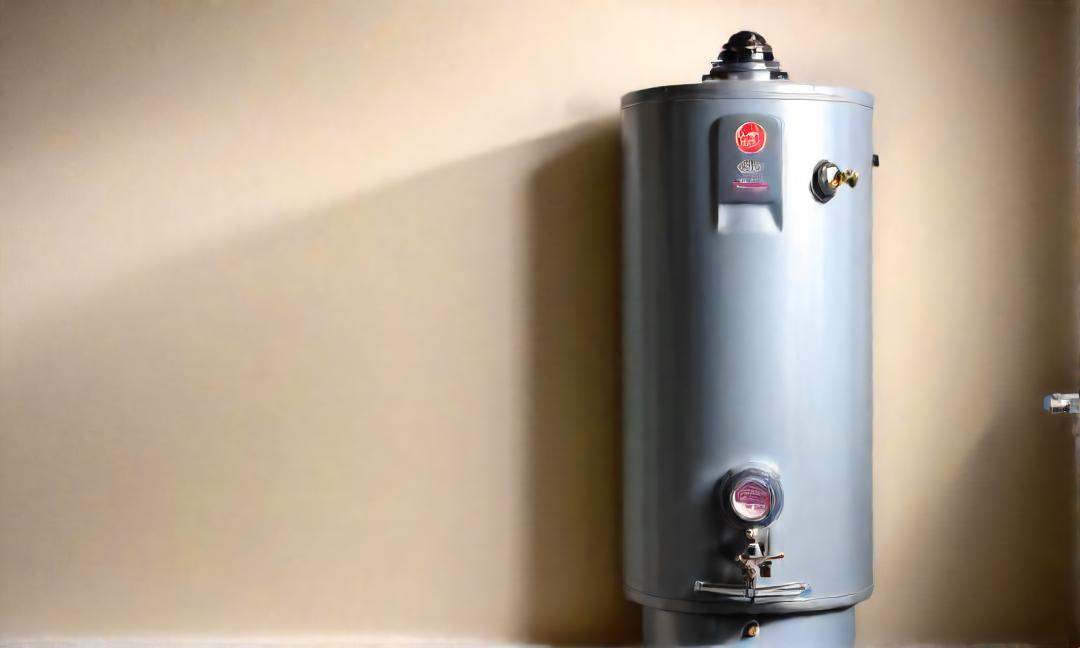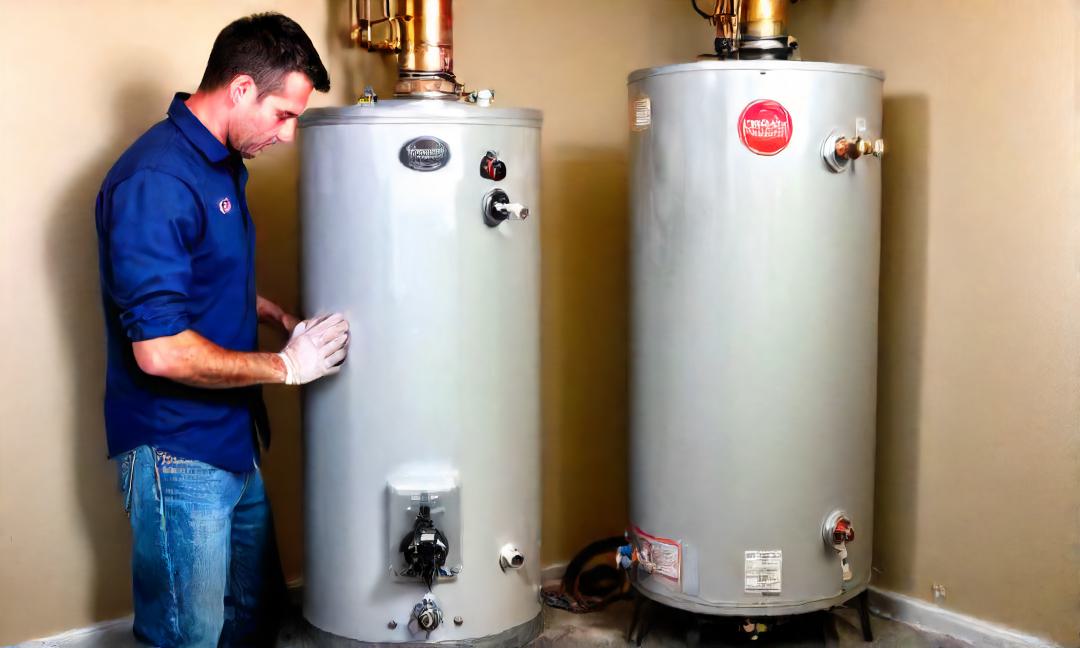
Troubleshooting Your Rheem Gas Water Heater
Identifying Common Issues
Every now and then, your Rheem gas water heater might act up, causing you frustration. It’s crucial to identify common issues promptly to prevent further inconvenience. Keep an eye out for irregularities in water temperature or strange noises emanating from the heater.
Checking the Pilot Light
The pilot light is like the guiding star of your water heater, ensuring its smooth operation. If you encounter issues with your Rheem gas water heater, the pilot light should be the first place to look. Make sure it’s lit and burning steadily to avoid any disruptions in your hot water supply.
Inspecting the Thermocouple
The thermocouple might sound like a complex component, but it plays a simple yet vital role in your water heater’s functionality. A faulty thermocouple can lead to erratic heating or no hot water at all. Regular inspection and potential replacement can save you from chilly showers.
Flushing the Tank for Sediment Build-Up
Over time, sediment build-up in your water heater tank can hinder its performance. Flushing the tank is akin to giving it a refreshing cleanse, ensuring optimal heat transfer and efficiency. This simple maintenance task can extend the lifespan of your Rheem gas water heater.
Testing the Gas Control Valve
The gas control valve acts as the gatekeeper of fuel flow to your water heater. If you suspect issues with heating consistency or inadequate hot water, the gas control valve warrants attention. Regular testing and maintenance of this crucial component can keep your water heater running smoothly.
Safety First: Precautions When Dealing with Gas Appliances
Shutting Off the Gas Supply
Begin with this crucial step to ensure safety and prevent any potential hazards. Locate the gas shut-off valve and turn it clockwise to stop the flow of gas to the appliance.
Using Proper Ventilation
Ventilation is key to maintaining a safe environment when dealing with gas appliances. Ensure that the area is well-ventilated to prevent the build-up of gas fumes, which can be harmful if inhaled.
Handling Gas Leaks
If you detect a gas leak, act swiftly and decisively. Avoid creating any sparks or flames, open windows for ventilation, and leave the area immediately. Contact your gas provider or emergency services for assistance.
Calling a Professional for Complex Issues
Some gas appliance issues require the expertise of a professional. If you encounter complex problems or are unsure about handling the situation yourself, it is best to seek the help of a qualified technician to avoid any risks.
Installing Carbon Monoxide Detectors
Protect yourself and your household from the silent threat of carbon monoxide by installing detectors in key areas of your home. These devices can alert you to dangerous levels of this odorless gas, providing an added layer of safety.
Extending the Lifespan of Your Rheem Gas Water Heater
Regular Maintenance Tips
Consistent upkeep is key to your Rheem gas water heater’s longevity. Implement a routine check-up schedule to inspect for leaks, corrosion, or unusual noises. Flush the tank every few months to prevent sediment buildup, ensuring optimal performance.
Adjusting the Temperature Settings
Fine-tuning your water heater’s temperature settings can intensify efficiency and safety. Strike a balance by setting the temperature not too high to prevent scalding and not too low to inhibit bacterial growth. Find the sweet spot that suits your household’s needs.
Insulating the Tank
Wrap your water heater in an insulating blanket to reduce heat loss and save energy. This simple step can significantly cut down on your utility bills in the course of maintaining consistent water temperature. Keep your Rheem gas water heater snug and efficient.
Draining the Tank Annually
Regularly draining your water heater tank helps eliminate sediment buildup, improving heat transfer and efficiency. This maintenance task prevents corrosion and prolongs the lifespan of your Rheem gas water heater. Schedule an annual draining to keep it running smoothly.
Considering a Water Softener
If your area has hard water, installing a water softener can benefit your Rheem gas water heater. Softened water reduces mineral deposits, extending the appliance’s lifespan and enhancing performance. Pioneer this option to protect your investment in the long run.

Energy Efficiency Tips for Your Rheem Gas Water Heater
Setting a Timer for Heating Needs
Begin your energy-saving journey by setting a timer for your Rheem gas water heater. This simple adjustment allows you to customize your heating schedule, ensuring hot water is available when needed without wastage. Just like programming your coffee maker to have a fresh brew ready when you wake up!
Insulating Hot Water Pipes
Don’t let precious heat escape! Insulating your hot water pipes keeps the warmth where it belongs, reducing energy loss and ensuring that your Rheem gas water heater operates efficiently. It’s like wrapping your pipes in a cozy blanket to prevent any heat from sneaking away.
Using Low-Flow Fixtures
Upgrade your fixtures to low-flow options to optimize water usage and reduce the workload on your Rheem gas water heater. These fixtures maintain water pressure at the same time minimizing wastage, akin to enjoying a refreshing shower without the guilt of excessive water consumption.
Installing a Tankless Water Heater as Supplement
Consider adding a tankless water heater as a supplement to your existing Rheem gas water heater for additional energy savings. This modern solution provides hot water on demand, eliminating standby heat loss and ensuring efficiency. It’s like having a backup singer to augment the performance of the main act!
Monitoring Energy Usage
Stay informed about your energy consumption by regularly monitoring your Rheem gas water heater’s usage. By keeping track of how much energy is being utilized, you can identify opportunities for further optimization and efficiency. It’s akin to being your own energy detective, solving the mystery of where your energy is going!
DIY Repairs for Minor Rheem Gas Water Heater Issues
Replacing a Faulty Thermocouple
Picture this: your water heater is like a finely tuned orchestra, each part playing a crucial role. When the thermocouple goes out of tune, it’s like the lead violinist missing a note. To replace it, first, ensure your water heater is off. Locate the thermocouple, unscrew it, and carefully install the new one. Just like a skilled musician, your water heater will be back in harmony in no time.
Cleaning the Pilot Orifice
Think of the pilot orifice as the heart of your water heater, pumping life into the flames. Over time, debris can clog this vital organ, causing your heater to falter. To clean it, gently remove any obstructions using a small brush or compressed air. Once clear, your water heater will breathe a sigh of relief and burn brightly once more.
Flushing the Tank Yourself
Imagine your water heater as a busy highway, with sediment buildup causing traffic jams. Flushing the tank is like opening up the lanes, allowing hot water to flow freely. Simply attach a hose to the drain valve, let the water run clear, and watch as your water heater enjoys a smooth ride once again.
Adjusting the Temperature Settings
Your water heater’s temperature settings are like a delicate dance between comfort and efficiency. If your water is too hot or too cold, it’s time to make an adjustment. Locate the thermostat dial, make subtle changes, and find the perfect balance for your needs. Your water heater will thank you with just the right amount of warmth.
Troubleshooting Ignition Problems
Picturing your water heater as a campfire, ignition problems are like damp wood struggling to catch fire. Check for gas supply issues, pilot light obstructions, or faulty components. By troubleshooting these issues methodically, you can reignite the flame and bring warmth back into your home.

When to Call a Professional for Rheem Gas Water Heater Repairs
Signs of Major Malfunctions
If your Rheem gas water heater starts acting up, pay attention to any sudden changes in its performance. Look out for irregularities like inconsistent water temperature, inadequate hot water supply, or frequent shutdowns. These signs could indicate a major underlying issue that requires professional intervention.
Strange Noises or Odors
Unusual noises or odors emanating from your Rheem gas water heater can be alarming. Hissing sounds, banging noises, or the smell of gas could signify potential problems. Ignoring these warning signs may lead to safety hazards or equipment failure. It’s crucial to contact a professional promptly to diagnose and address these issues.
Persistent Pilot Light Issues
A pilot light that frequently goes out or struggles to stay lit is a clear indication of a problem with your Rheem gas water heater. This issue can disrupt the heating process and result in cold showers or inadequate hot water. To avoid inconvenience and ensure the safety of your system, seek the expertise of a qualified professional to resolve pilot light issues promptly.
Leaks or Water Damage
Visible leaks or signs of water damage around your Rheem gas water heater demand immediate attention. Leaking water heaters can cause structural damage, mold growth, and water wastage. Addressing leaks promptly with the help of a professional can prevent further damage and ensure the efficient operation of your water heating system.
Age of the Water Heater
The age of your Rheem gas water heater plays a significant role in determining when to seek professional repairs. As water heaters age, components may deteriorate, leading to decreased efficiency and potential malfunctions. If your water heater is nearing or has surpassed its expected lifespan, consulting a professional for assessment and necessary repairs is advisable to maintain optimal performance.
